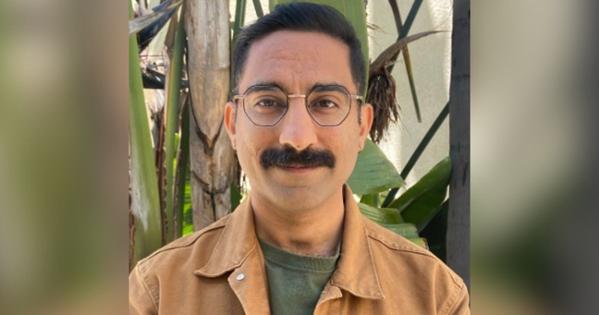Navigating the Politics of Technology

For Dr. Rohan Grover, questions about the relationship between technology, law, and society have long been at the center of his work. Now joining American University School of Communication (AU SOC), he brings with him a commitment to helping students think critically about how data and media are governed, and what those choices mean for the future. This semester, he is teaching Digital Media and Culture (COMM-365) and Censorship and Media (COMM-514), courses that reflect his focus on the political dimensions of technology and communication.
Grover’s academic and professional journey centers on how technology and society intersect. After studying economics at the Wharton School and media, culture, and communication at NYU, he earned a PhD in Communication at USC’s Annenberg School, focusing on the politics of technology and governance.
That focus was reinforced in 2020, when he worked as a product manager at HuffPost and was tasked with making the company’s mobile apps comply with California’s new data privacy law. “I asked [the privacy lawyer] to translate the law into specific requirements, and then we went back and forth on whose job it was to determine what ‘compliance’ meant—the lawyer’s or my own,” Grover said. The experience showed how questions of expertise and responsibility shape tech policy in practice—a theme that continues to drive his research today.
Grover’s research explores how tech policy is carried out in practice, who has the authority to shape its meaning, and what those decisions reveal about power in the digital age. Having worked across academia, advocacy, and media, he sees the intersection of these worlds as fertile ground for collaboration. “Each one is full of people who have bold, creative ideas for a better world,” he explained. “What differs is the tools and the skills they use–education, research, public mobilization, journalism. But often, they do their best work by working together.”
In the classroom, Grover hopes to equip students with more than technical expertise or theoretical frameworks. For him, the heart of teaching lies in cultivating a critical sensibility about media and technology.
“There are powerful interests with deep pockets investing in grand narratives that frame technology as neutral tools or as forces shaping the world around us,” he said. “But it is a choice to accept these narratives as inevitable or to engage them thoughtfully–and that choice has less to do with technical skills than with feeling empowered and informed to ask questions and imagine otherwise.”
That same spirit of empowerment guides the advice he offers to students considering research at the intersection of law and technology. Grover emphasizes the value of becoming a translator across disciplines. He said, “A rare and valuable skill set is the ability to translate and synthesize across fields. I’ve seen projects break down because people can’t communicate across teams. But those who can bridge the gap between lawyers, technologists, and researchers become indispensable.”
At SOC, Grover is eager to channel this energy into a community he already finds inspiring. “SOC is special because it has such an incredibly thoughtful community of students who care about having a positive impact on the world by spreading valuable information, ideas, and stories. That energy is infectious,” he said.
Looking ahead, Grover is working on a book project about the politics of data privacy law and what it can teach us about broader debates in tech policy. Being in Washington, D.C. offers him a unique vantage point to study emerging areas like AI governance. “It’s going to be an important space to understand, especially as new companies and individuals gain influence and use policy to achieve their own goals,” he said.
For Grover, tech policy is never just about regulation or compliance, but it’s about who we are as a society and the futures we imagine together. “Governing technology is never just about the law,” he noted. “It’s also about fundamental questions of what kind of future we are building–and for whom. Tech policy is always political.